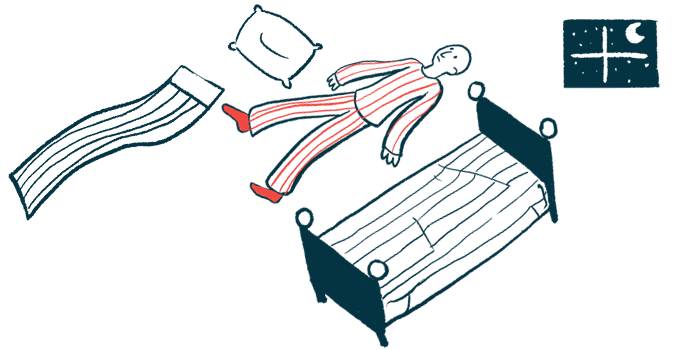People With CMT2 More Likely to Have Inefficient, Fragmented Sleep
Written by |

People with Charcot-Marie-Tooth disease (CMT) type 2 are likely to experience inefficient sleep with more time spent awake after going to bed, according to a new study.
“We can conclude that sleep in Charcot-Marie-Tooth disease is impaired, specifically for those with type 2 of the disease, which is evidenced by longer awake time after sleep onset, lower sleep efficiency, and worse pain perception,” its researchers wrote.
The study also suggests that painful cramps at night are associated with worse sleep among people with CMT.
The study, “The impact of pain and nocturnal cramps on sleep quality in Charcot Marie Tooth disease: a case-control study,” was published in the journal Sleep Science.
Many people with CMT experience sleep problems. Pain is another CMT symptom, and it is closely connected with sleep — sleeping can help ease pain, but pain also can interfere with sleep.
Here, a team of scientists in Brazil conducted a case-control study to assess sleep quality in CMT, with a focus on how pain affects sleep.
The study included 10 people with CMT type 1 (CMT1) and 23 with CMT type 2 (CMT2). It also included 22 controls matched by age and sex who were from the same families affected by the disease, but who did not themselves have signs or symptoms of CMT.
Participants completed a battery of standardized tests related to sleep, fatigue, and pain. They also underwent sleep monitoring via actigraphy (a monitor worn around the wrist like a watch that measures sleep by tracking body movements).
Results from actigraphy showed that patients with CMT2 had lower sleep efficiency than controls or CMT1 patients. Wake after sleep onset — the time spent awake after having already gone to sleep — was significantly higher in the CMT2 group compared with the two other groups.
“Our results showed that individuals from our sample affected with CMT type 2 … spend more time awake after the onset of sleep and have lower sleep efficiency, which indicates higher fragmentation of sleep,” the researchers concluded, noting also that these patients generally had more severe scores for measures of self-reported pain and fatigue.
All of the CMT1 patients and 65% of those with CMT2 reported experiencing cramps at night. Nocturnal cramps also were reported by 27% of the control group. Analyses broadly indicated that sleep quality was worse for individuals who experienced cramps at night.
“Nocturnal cramps worsen sleep and pain perception in those affected by it,” the researchers wrote.







